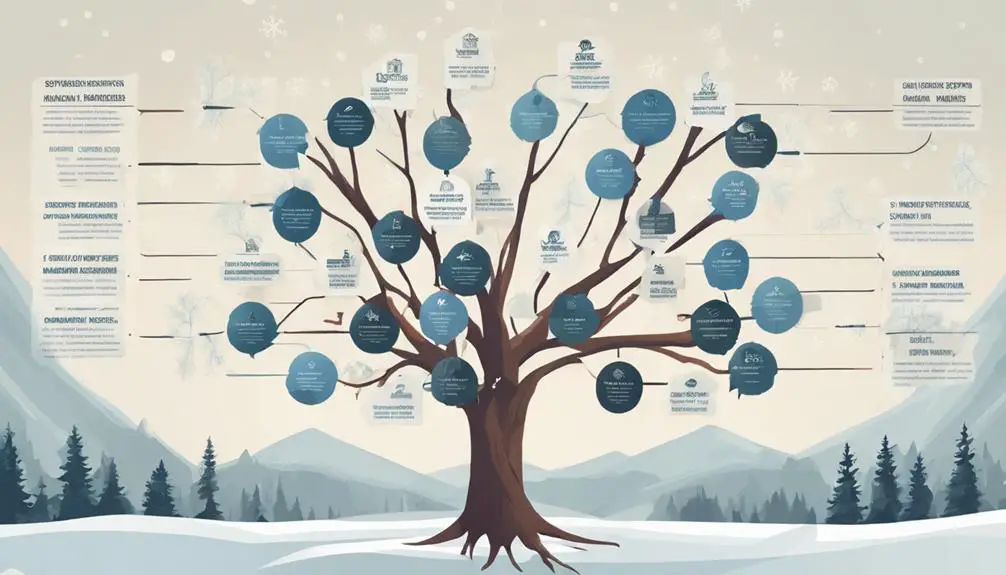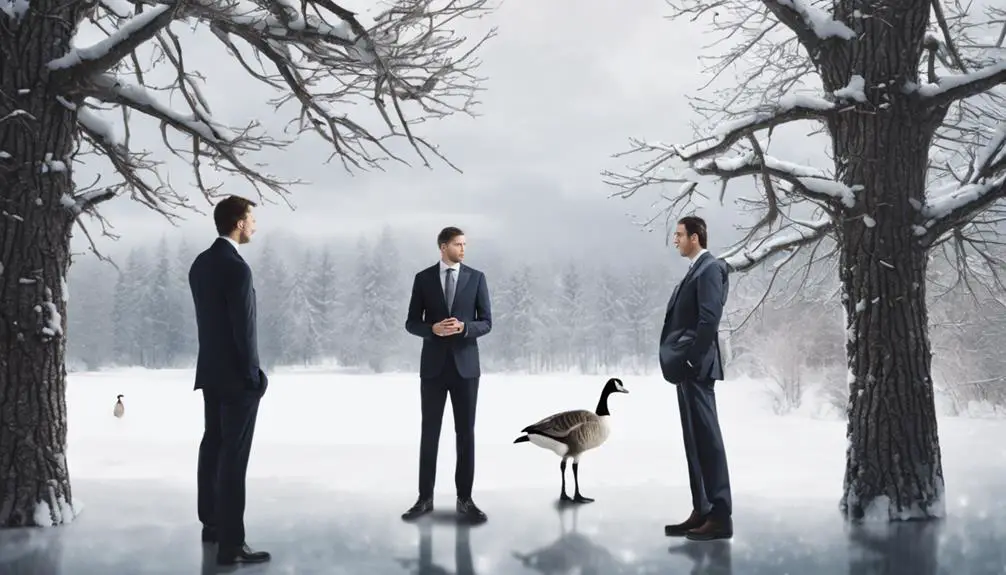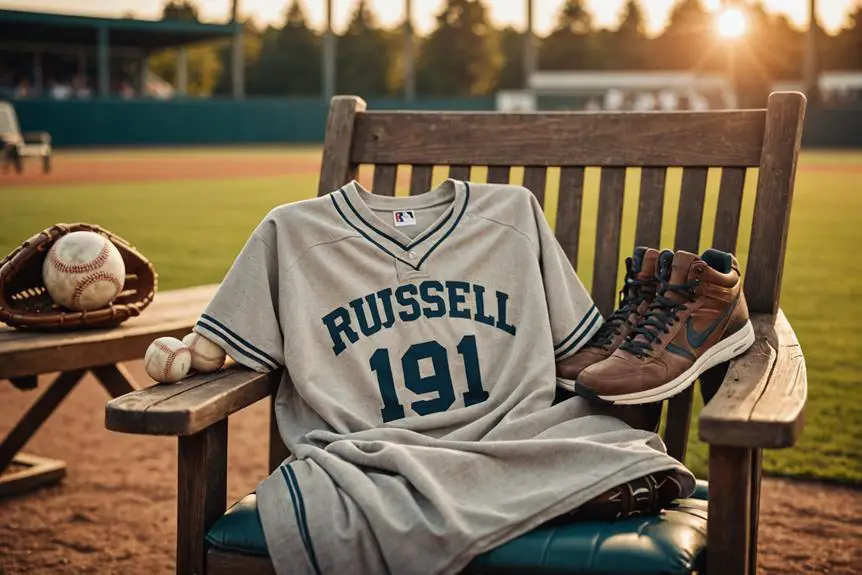So, you wanna know who owns Canada Goose? Well, the big player is Bain Capital, which holds a hefty 60.53% of the company. But wait, there's more! CEO Dani Reiss also has skin in the game, owning 39.47% of the shares. Pretty cool, right? Major institutional investors like Morgan Stanley and Fidelity Management also have their share, adding to the mix. Since going public in 2017, Canada Goose has transformed into a luxury brand, and its ownership reflects that shift. Curious about how this ownership impacts the brand's direction? Stick around and find out!
Ownership Structure Overview

When you look at Canada Goose's ownership structure, you'll notice that it's heavily influenced by private equity. That's right! Bain Capital, a big private equity firm, holds a whopping 60.53% of the company. So, you could say they're calling a lot of the shots. But wait, there's more! Dani Reiss, the CEO, isn't just sitting back; he's got skin in the game too, owning 39.47% of the shares. That's a significant chunk!
Now, what about the other players? Institutional investors are in the mix as well. You've got Morgan Stanley with 13.59%, Fidelity Management at 11.50%, and Manulife Financial holding 8.498%. Together, these major stakeholders own over 30 million shares. That's a serious investment in the luxury apparel sector, wouldn't you agree?
Since going public in March 2017, Canada Goose has been traded on the TSX and NYSE. They raised about $255 million during their IPO, which really kicked things into high gear. So, the ownership structure isn't just numbers; it shapes the future of this iconic brand! Isn't that exciting?
Major Shareholders and Investors
Canada Goose's ownership landscape is marked by significant stakes held by a few key players who shape the company's direction. At the forefront is Bain Capital, holding an impressive 60.53% stake. That's a huge chunk, don't you think? This private equity firm clearly believes in the brand's potential in the luxury apparel market. Then we have Dani Reiss, the CEO, who owns 39.47% of the shares. It shows just how invested he is in the success of Canada Goose. Talk about commitment!
Other important players in the game include institutional investors like Morgan Stanley with 13.59%, Fidelity Management at 11.50%, and Manulife Financial with 8.49%. Collectively, these major shareholders hold over 30 million shares, which indicates a tight grip on the company's future.
With such a blend of private equity and institutional interests, Canada Goose is well-positioned to thrive in the competitive luxury apparel sector. It makes you wonder—what's next for this iconic brand? With these powerful stakeholders at the helm, the sky's the limit!
Historical Context of Ownership

Ownership of Canada Goose has evolved considerably since its inception in 1957. Founded by Sam Tick as Metro Sportswear Ltd., it initially focused on private label manufacturing. But things took a turn in 2001 when Dani Reiss, Sam's grandson, stepped in as CEO. He saw the potential to transform Canada Goose into a direct-to-consumer luxury brand. Can you imagine the leap from everyday jackets to high-end fashion?
Fast forward to March 2017, and Canada Goose went public, raising about $255 million! This marked a big shift in ownership structure. Now, Bain Capital holds a significant 60.53% stake, while Dani Reiss retains 39.47%. That's a mix of family legacy and institutional power!
With major players like Morgan Stanley and Fidelity Management in the mix, Canada Goose's ownership landscape reflects a diverse group of shareholders. So, whether you're a fan of their snuggly parkas or just curious about the brand, it's fascinating to see how ownership has transformed. From private label beginnings to a luxury powerhouse, Canada Goose's journey is a reflection of bold vision and strategic changes! Isn't that inspiring?
Corporate Governance and Leadership
While traversing the corporate landscape, you'll find that Canada Goose's governance and leadership are guided by a board rich in experience and diverse expertise. This isn't your average board of directors! With industry veterans like Maureen Chiquet, the former Global CEO of Chanel, and John Davison, ex-President and CEO of Four Seasons Holdings Inc., the company has a powerhouse of brand-building knowledge at its fingertips.
Dani Reiss, who joined Canada Goose back in 1997 and became CEO in 2001, has been a game-changer. Under his leadership, the company transformed from a small outerwear manufacturer into a global luxury brand. Pretty impressive, right?
The board emphasizes strong corporate governance with a commitment to transparency and ethical leadership, making sure every decision aligns with sustainable practices. Plus, with Bain Capital owning over 60% and Reiss holding nearly 40%, there's a solid commitment to the company's future.
Impact of Shareholder Decisions

Shareholder decisions wield significant power over Canada Goose's strategic trajectory, shaping everything from capital allocation to growth initiatives. With Bain Capital holding a majority stake of 60.53%, and Dani Reiss owning 39.47%, it's clear these big players can steer the company in bold new directions. But what does that mean for you, the everyday fan of Canada Goose?
When shareholders decide to invest more in sustainability or international expansion, it can make a huge difference. Imagine Canada Goose jackets being made even more eco-friendly or popping up in stores around the globe! These decisions directly impact how the brand grows and competes.
Institutional investors like Morgan Stanley and Fidelity Management, owning significant portions, also play a role in shaping financial policies. Their influence can push for better capital allocation, ensuring funds go where they're most effective.
Frequently Asked Questions
Is Canada Goose Still a Canadian Company?
Yes, Canada Goose is still a Canadian company. Its brand heritage shines through its commitment to local manufacturing practices, despite being under corporate ownership. The focus on Canadian production reinforces its identity in the luxury outerwear market.
Why Canada Goose Is so Expensive?
Canada Goose's high prices stem from luxury branding, production costs, and market demand. You're paying for premium materials, ethical practices, and innovative features, all of which enhance the perceived value of their exceptional outerwear.
Is Canada Goose Drake's Brand?
No, Canada Goose isn't Drake's brand. While his collaboration and celebrity endorsements boost the brand's fashion influence, Canada Goose remains an independent luxury outerwear company, distinct from any individual celebrity's ownership or control.
What Is Canada Goose's Net Worth?
Canada Goose's valuation reflects its strong financial performance, currently around CAD 1.02 billion. Despite market competition and fluctuations, its profitability indicates resilience, showcasing a brand that continues to thrive in the luxury outerwear sector.
Conclusion
So, now you know who owns Canada Goose! It's a mix of big investors and shareholders who keep things interesting. Their decisions really shape the brand, making it what it is today. Isn't it cool how the people behind the scenes influence what you see in stores? Next time you see a cozy Canada Goose jacket, think about all those folks involved in making it happen. Who knew owning a piece of fashion could be this fascinating, right?




